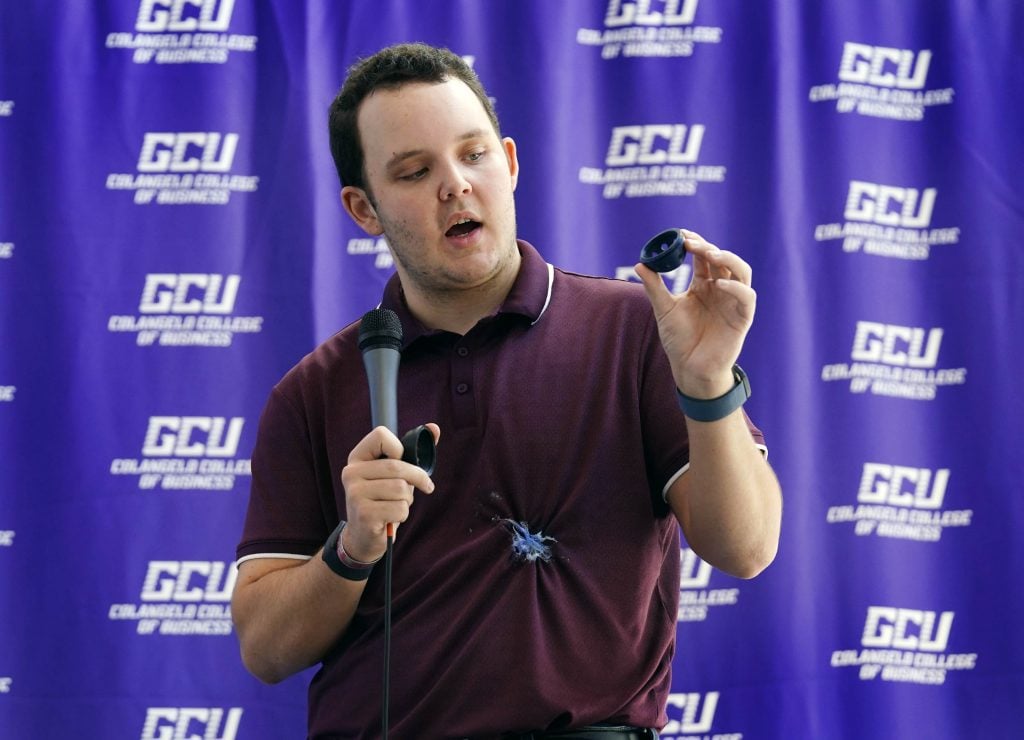
Photos by Ralph Freso / Slideshow
Chase Hanson’s slideshow matched his presentation, and the accident on the left side of his polo shirt perfectly illustrated the problem his proposed product promises to solve.
But there was one problem. Hanson spoke too hurriedly at times, a flaw pointed out by an IDEA Club official at his first pitch event.
It's one reason why prospective contestants must participate in two pitch events in front of IDEA Club officials and members at the Colangelo College of Business lobby for a chance to be chosen for the Canyon Challenge entrepreneurial competition, Grand Canyon University’s version of television's "Shark Tank," which has heightened interest in entrepreneurs.
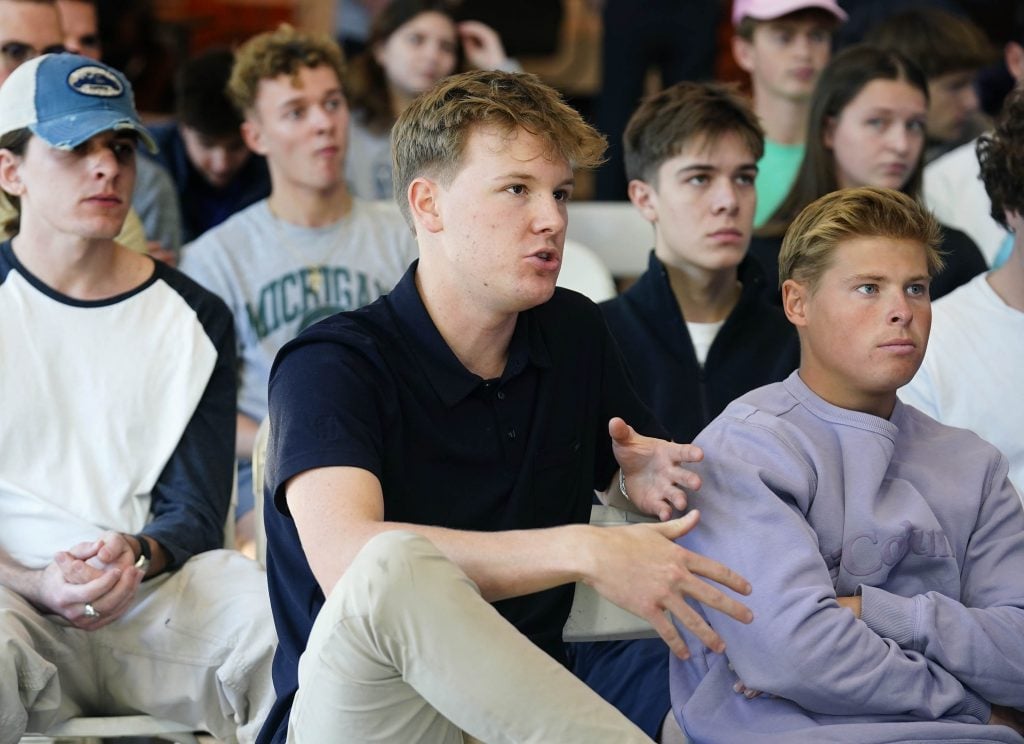
The importance and cleverness of each product can catch the attention of the most casual observer, but that can be negated if the delivery is bland and not convincing.
That is why Canyon Challenge organizers watch each contestant closely and lend advice to improve their pitches.
“It was a little nerve-wracking but a good experience,” Hanson said. “I can't wait to get up and do it again and just get more and more comfortable.”
Hanson’s vibrant delivery was more polished during his second presentation one week later, and his more comprehensive demonstration reduced the number of questions that had lingered during his first go-round.
To gain more practice, Hanson talked up his product, Laundry Lad, a device that contains detergent pods and prevents them from sticking to clothes while in washers, at three pitch events.
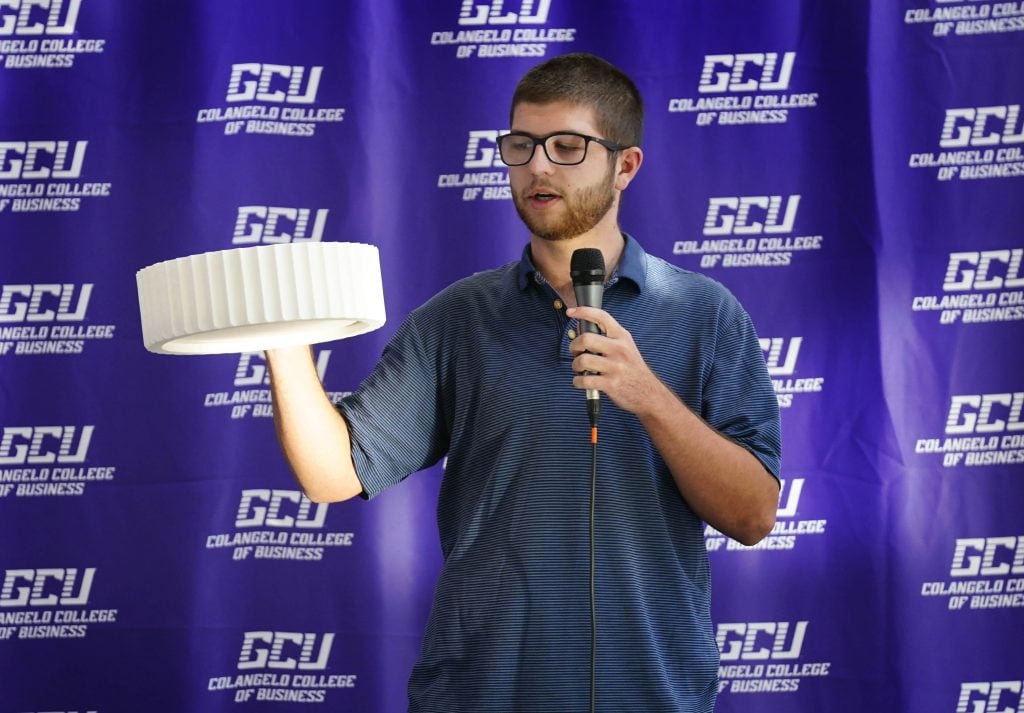
“So that the idea of improving the quality of your ideas, we have a format for that,” said Robert Vera, founding director of Canyon Ventures who teaches a business execution class that frequently requires students to pitch their products in front of a classroom. “It's knowledge plus practice plus talent. As you practice over and over again, the quality of your ideas actually gets better. So the pitch is the most important part.
“Now, it doesn't mitigate the idea. You've got to have a quality product, and it's got to be a viable market, and it's got to be you. There's got to be a big problem that you're solving, but you've got to be able to present that solution, that idea, and package that all up in a way that feels true to people when you're presenting.
“If you can't do that right, someone else will. So the pitch is absolutely essential, and that's why we work on it here.”
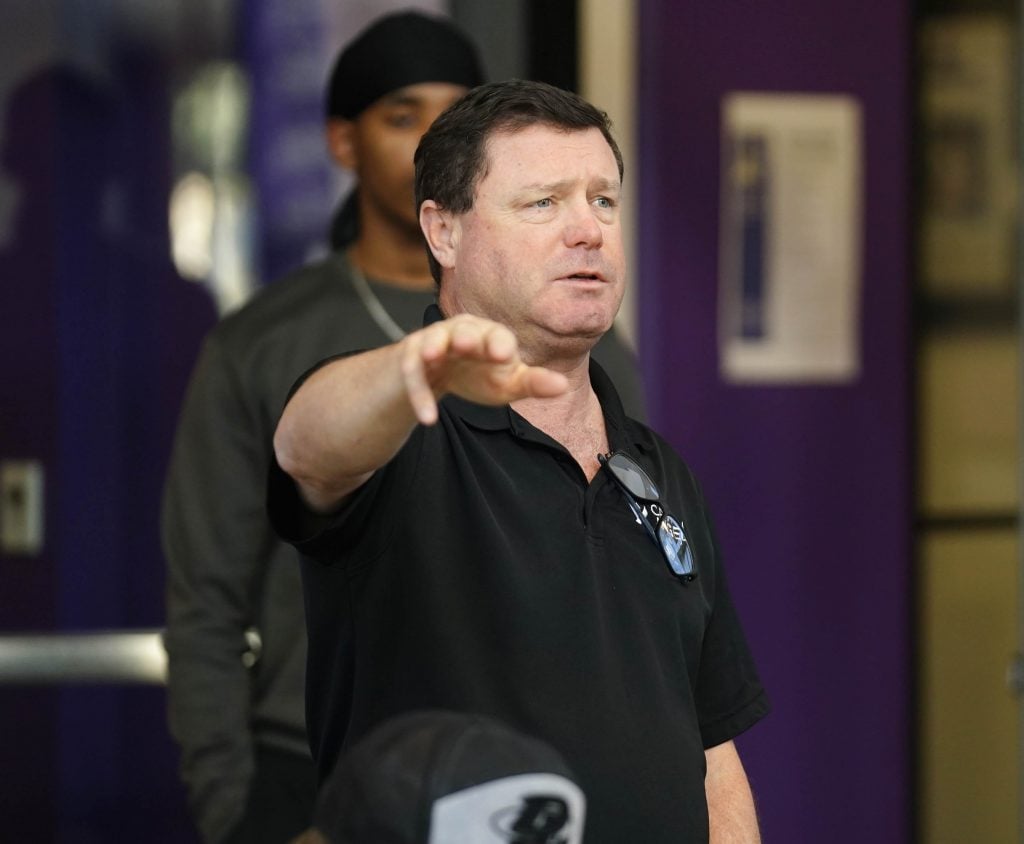
The pitch sessions are comprehensive but serve a great purpose. Each candidate who advances to the $6,000-in-prizes Canyon Challenge, scheduled for Dec. 5 at Sunset Auditorium, will have convinced a panel of three judges that they can describe the benefits of their product during a five-minute window; answer an array of questions about costs, projected profits, their product’s effect on the environment, etc.; and absorb constructive criticism from IDEA Club officials who have experienced similar rounds of scrutiny during past presentations.
The five finalists are expected to be announced shortly after the Thanksgiving break.
“I'm very confident in my idea, and public speaking is definitely something that I've been needing to work on, so this has gotten me a lot more comfortable with that,” said Ainsley Ross, a senior entrepreneurial studies major. “I definitely was nervous, but I'm glad other people think I was confident up there.”
Ross spoke with conviction about her product, WakeShare, an Airbnb for boats and water sports equipment, but was not above criticizing herself.
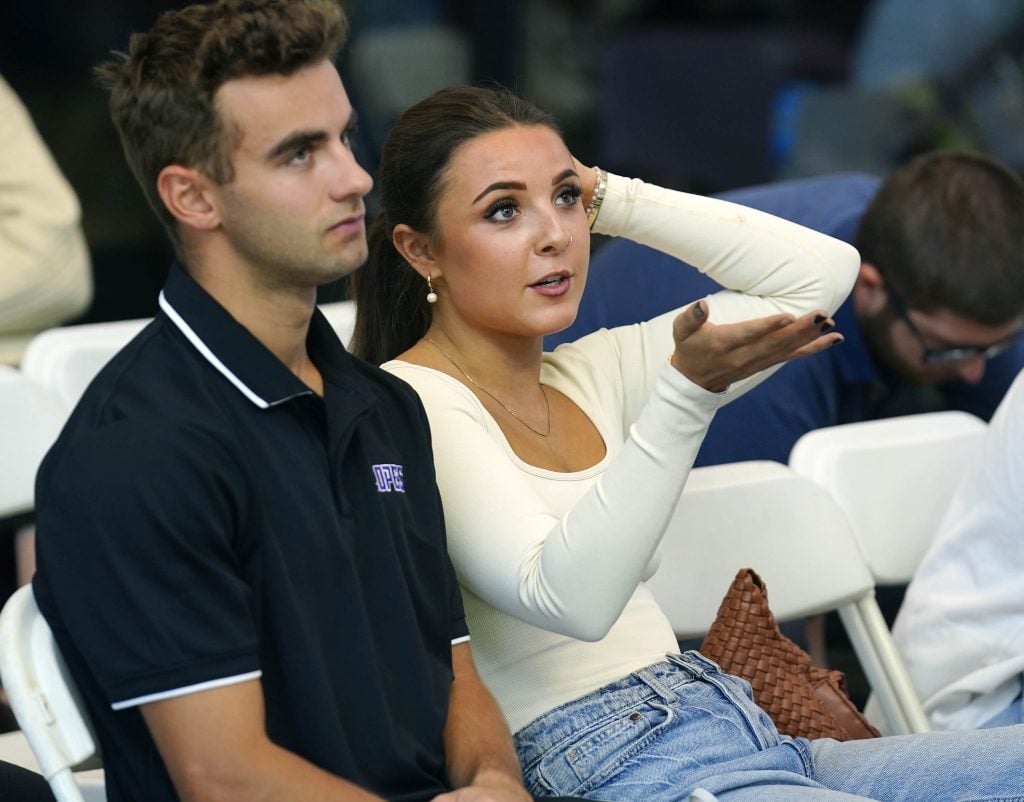
“I wish I would have done better in making eye contact with the audience,” Ross said, “I get nervous, so I tend to look away and just pretend that they're not there.
“I definitely need to be better about engaging with the audience, like moving around the stage and not just any place, and staying confident in my idea.”
IDEA Club Vice President Sarah LeDrew said she often notices the progress in candidates between the first and second time they participate in pitch events.
“We always want to encourage out students,” LeDrew said. “We also want to provide that constructive feedback instead of criticism because we want IDEA Club to be a safe place to where they feel they can pitch, do their best and receive that feedback that’s going to help them, not discourage them.
“Our feedback is always to the extent of being encouraging rather than tearing down.”
Jake Leyden accepted constructive criticism of his pitch for skin moisturizing company The Bar Above with grace. Leyden rarely attended IDEA Club meetings because they were conducted at the same time he meets with a prayer group.
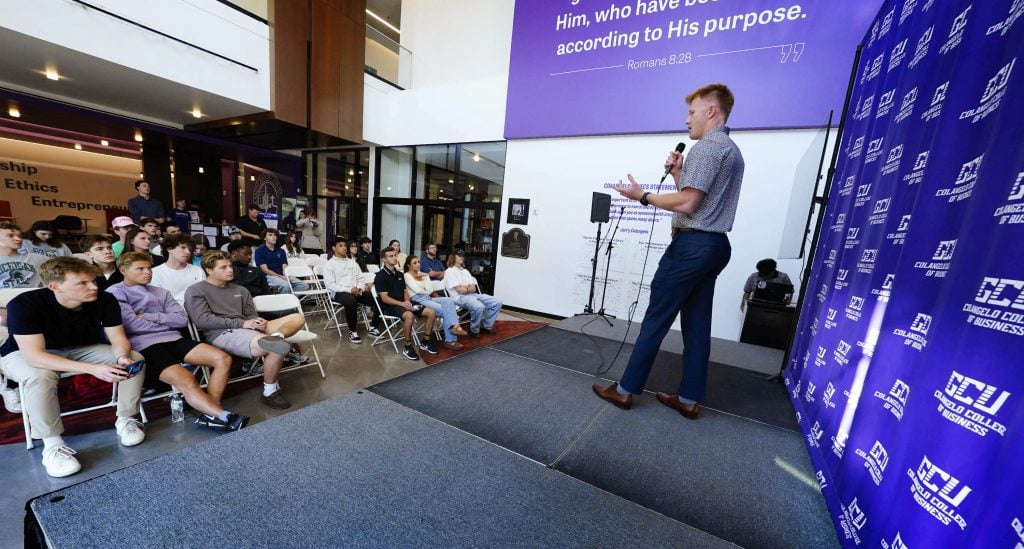
“I'm a fan on just getting myself out there and learning,” Leyden said. “Fail fast. If you will.”
He admittedly he did not prepare for his pitch until an hour before the gathering. His presentation consisted of him using most of the allotted time to discuss the severity of skin ailments, the problems with current products and the benefits of his product – with only a small container of his product but no slideshow to supplement his pitch.
After answering several questions from the audience with ease, an IDEA Club official suggested Leyden focus more on his product rather than elaborate on the problems with other skin care products.
“I think actually I needed to develop everything better,” Leyden said. “I needed to be more ready. That being said, I think the reception was good. I just sold one, which is a good sign, right?
“And just in general, I think it went well. It's good to get my feet more wet with the community here, because there's so much good advice, really smart people.”
Hanson, meanwhile, started his idea in September, shortly after enrolling in a class taught by Vera, who suggested Hanson go to Canyon Ventures to advance his product.
Lucas Patten, winner of the Canyon Challenge last spring, assisted Hanson with a prototype for his product on his 3D printer.
“I just got to memorize more,” Hanson said. “I have faith in my product. It’s a good product, and it’s just my pitch I've got to nail down.
“I’m hoping I’m going to be ready and have enough practice by Dec. 6, then knock it out of the park by then.”
Said Vera: “That's how actors do it. They memorize it, and then they perform it. There are steps to it, right? So first you write it, then you practice it, and then you perform it.
“And that's what we want our students to be able to perform their presentation, so that it feels true to people, or it feels authentic, it's funny, it's interesting, and that's what we're getting at.”
GCU News Senior Writer Mark Gonzales can be reached at [email protected]
***
Related content:
GCU News: CCOB displays a decade's worth of a force for good
GCU News: Listening to mom pays off for Canyon Challenge winner
GCU News: Three GCU student entrepreneurs honored for innovation



































































